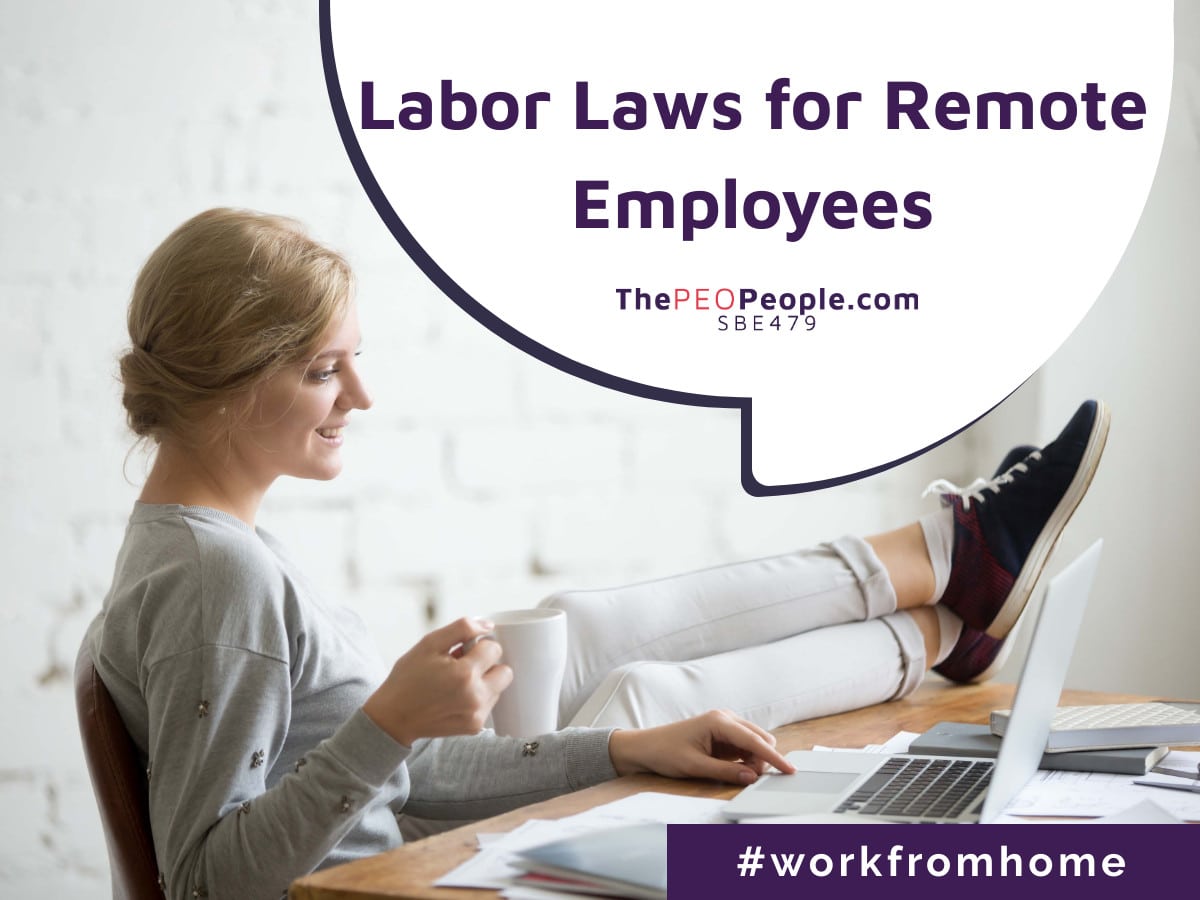
Labor Laws for Remote Employees
Due to COVID-19 remote work or work from home jobs have become increasingly more common. While this is an uncertain time for more employers managing a team that works remotely can save money and increase productivity. If you can manage your remote team effectively.
But staying compliant can be especially tough when hiring remote employees. States have different requirements for employers, and there’s a lot to keep track of. Finding a PEO that can manage all of your companies employee benefits, HR, compliance, and payroll can help ease your mind and focus on your business.
The legal requirements for conducting business vary from state-by-state. Employers must always be attentive to the state and local laws where their remote employees live to determine which employment laws apply to them.
If an employee lives in another state the employee will be considered an employee in the state of their residence NOT the state where your company is located. Also, a remote employee is an employee in the state where they provide services to the employer. If you chose to do this on your own you would start with each state’s Department of Labor to become familiar with their employment requirements. Instead, we can match you with a PEO that fits your needs and they will handle all the annoying time-consuming tasks for your remote employees. Below are several key items you would need to review for compliance in any and all states.
Payroll
Different income tax for each state. You would need to stay on top of which state labor laws apply and relevant state and local filing deadlines, tax rates, and tax changes, in addition to federal laws. There are PEOs are authorized to operate as a Professional Employer Organization in all 50 states and D.C., and can help companies with payroll.
Wage & Hour Requirements
The Fair Labor Standards Act (FLSA) is a federal law that regulates minimum wage, overtime, equal pay, recordkeeping, and child labor. This requires employers to pay their employees at least the minimum wage for all hours worked and overtime pay for hours worked over 40 in a single workweek paid at a rate of 1.5 times the employee’s normal pay.
Remote work counts as regular time worked. You will need to compensate remote nonexempt employees for all hours worked, including work performed at home or another remote location, under the FLSA. Here is where you need to make sure to check state wage and hour laws for any additional requirements, especially around record-keeping, overtime, minimum wage, exemptions, pay frequency and statements.
Posting Requirements
Federal, state and local labor laws require employers to put on display usually in poster form showcases and employee’s rights. This is tricky when employees are working remotely. You can provide these employees notice electronically, post them on a company intranet site, or mail them hard copies that they can post at their remote worksite. But always be sure to check all laws to ensure compliance with posting requirements.
Immigration
If your new hire has a valid work authorization you need to complete an I-9 form, to verify employment eligibility. Employers are required to use Form I-9 to verify the identity and employment authorization of each new employee hired after November 6, 1986 to work in the US for wages or other remuneration. A PEO can help streamline this process usually by doing this electronically. Technology has changed everything!
According to U.S. Citizenship and Immigration Services, “Form I-9 is the core of E-Verify.” In sum, E-Verify compares Form I-9 information to government records online, in order to confirm an employee is authorized to work in the US.
Workers’ Comp
A company’s workers’ compensation policy should include your employees working remotely. They may be eligible to receive workers’ compensation for injuries or occupational illnesses that occur at home. If the injury or illness results from employment.
These topics are just a starting point of what an employer needs to stay on top of as our working environments change. Allow a PEO to handle all this headache for you. We know the most important thing is growing your business. We will find the best PEO to help manage all this annoying stuff.
Keep Me Updated
Keep Me Updated
Copyright © 2025 Small Business Efficiency at 479.

